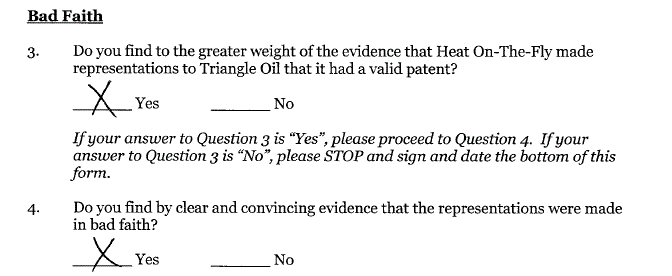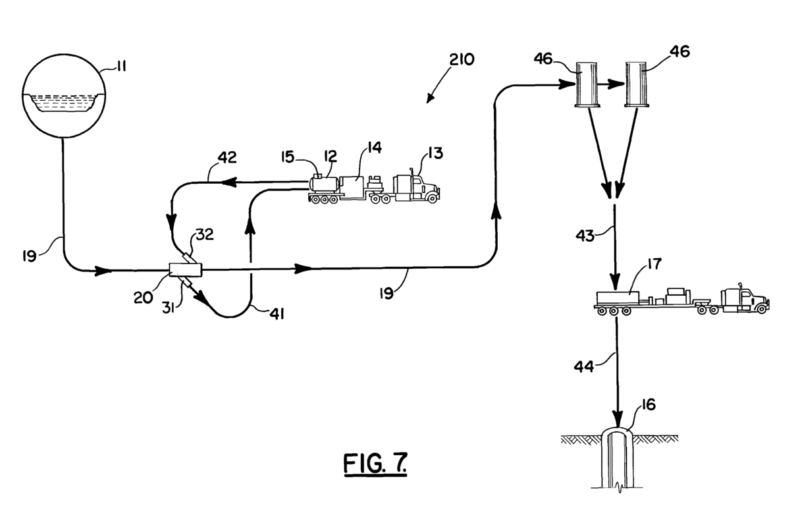by Dennis Crouch
This decision suggests that the Federal Circuit is acceding to the Supreme Court’s approach giving broad discretion to the district courts in attorney fees cases rather than nit-picking individual elements of the totality-of-the-circumstances test. But, we’ll see.
Energy Heating, LLC v. Heat On-the-Fly, LLC (Fed. Cir. 2021)
In a prior appeal in this case, the the Federal Circuit affirmed the lower court’s holding that Heat On-The-Fly’s U.S. Patent No. 8,171,993 was unenforceable due to inequitable conduct. By the critical date (1-year-before-filing), the patentee had done about $2 million in jobs using the invention, but did not disclose those sales/uses to the USPTO during prosecution.
On remand, the district court awarded attorney fees to the defendants — finding the large number of undisclosed sales sufficient to constitute “affirmative egregious conduct” and then pursued aggressive litigation despite knowing that the patent was invalid.
The patent act provides a district court with discretion to award “reasonable attorney fees to the prevailing party” in “exceptional cases.” Once you have a prevailing party, the district court needs to determine whether the case is “exceptional.” If so, the district court will then determine whether to award attorney fees, and the amount to award. These determinations are within the district court’s equitable discretion based upon a broad “totality of the circumstances” test. On appeal, the district court’s factual and equitable determinations are given deference and only overturned based upon an abuse of discretion. Octane Fitness, LLC v. ICON Health & Fitness, Inc., 572 U.S. 545 (2014); Highmark Inc. v. Allcare Health Mgmt. Sys., Inc., 572 U.S. 559 (2014).
On appeal, the patentee challenged the “exceptional case” finding, but the appellate panel found no abuse of discretion.
Inequitable conduct is an equitable defense that is traditionally decided by a judge rather than a jury. An oddity of the case is that the jury was actually asked whether the patentee had represented in bad faith that it held a valid patent as part of the defendant’s state law claim counterclaim of “deceit.”
The jury found bad faith, but actually sided with the patentee on the ultimate question of deceit under N.D. Law. On appeal, the patentee argued that the no-deceit conclusion should be determinative of no inequitable conduct as well. Of course, the prior appeal determined inequitable conduct and the Federal Circuit did not allow the issue to be relitigated in this appeal. The Federal Circuit did rule though that “the jury’s finding of no state-law ‘deceit’ simply has no bearing on inequitable
conduct.”
Finally, the patentee noted the absence of an express finding of litigation misconduct absent continuing to litigate losing positions. On appeal, the Federal Circuit found no problem with finding the case exceptional even absent particular litigation misconduct issues.
"had" - Google News
October 15, 2021 at 04:40PM
https://ift.tt/3aIF8Iy
Attorney fees awarded since patentee knew it had a losing case. - Patently-O
"had" - Google News
https://ift.tt/2KUBsq7
https://ift.tt/3c5pd6c
Bagikan Berita Ini
















0 Response to "Attorney fees awarded since patentee knew it had a losing case. - Patently-O"
Post a Comment